Mysteries
Deadly Spirits (sneak preview)
Chapter 1
During the final days of 1924, our neighborhood greengrocer fell down his basement stairs and broke his neck, a tragedy that left his family without a breadwinner. He was a nasty man, violent when drunk, and because he drank most of the time, his wife and children mourned only the loss of his earnings. Some neighbors wondered if he had been pushed; none wondered aloud. After the funeral, the widow was surprised to discover an enormous cache of liquor squirreled away in the basement, enough to last a lifetime and beyond, and all of it perfectly legal because federal law had provided for a one-year grace period starting in 1919 where folks could lay in as much alcohol as they wanted before Prohibition took effect.
The greengrocer’s widow, a far-thinking woman named Mrs. Ward, decided against selling the liquor case by case or even bottle by bottle. She realized that more money could be made by selling it glass by glass, so she turned her basement into a cozy speakeasy. Everyone knew her liquor was honest—none of that bathtub gin made with embalming fluid or poisonous wood alcohol. Her oldest, fourteen-year-old Dan, left school to run the place while she took over the grocery upstairs. Customers came and went discreetly through the store, usually picking up a head of lettuce or sack of potatoes as they left. Both businesses prospered.
The speakeasy, predictably called the Greengrocer’s by locals, was located at the corner of my street, half a block from our house in Chicago’s Near West Side. I went there three or four times a week, sometimes after a séance if it wasn’t too late, sometimes during the afternoon while Baby Tommy napped and I wanted a little company. Baby Tommy and I had lived at Madame Carlotta Romany’s house only a few months, but I had come to know some of our neighbors and made a few friends. It was a nice neighborhood with honest, hard-working people doing their darndest to keep heads above water. There was always someone I knew at the Greengrocer’s.
One windy Saturday afternoon in August, I came to the grocer’s for cherries. Carlotta had heard Mrs. Ward say she was expecting a crate of fresh cherries and had got it in her head to make a pie. Tommy was napping, so I popped across the street to get them.
The shop bell tinkled. “Leave the door open, Maddie, dear,” called Mrs. Ward from behind the counter. “The breeze is welcome.”
“I hope the cherries came in,” I said, pushing a brick against the door with my foot so it wouldn’t slam shut. “Carlotta’s already made pie crust.”
Her hands full, Mrs. Ward gestured with her elbow to the corner where two crates of bright red cherries sat one atop the other. I filled my basket with what looked like a pie’s worth and handed it to her to weigh. Sounds coming from below my feet reminded me of the basement speakeasy. Someone had turned the radio up quite loud. “Who’s downstairs?”
“Josephine and Dizzy. Mary Lou and her mom. Sandra Baker brought a gentleman friend, Marcus What’s-His-Name from around the corner. Unless one of them slipped out while I was in the back room. Go on down. My boy Dan’s made a batch of lemonade that goes nice with gin.”
The basement steps were steep and the treads narrow. Thoughts of the late Mr. Ward and his accidental tumble made me place my feet cautiously. Basements can be dreary, damp places, but Mrs. Ward had rigged out the place with easy chairs and checkered tablecloths so it felt more like a comfortable home than a cellar. A few well-placed lamps augmented what little natural light filtered through the high windows, and scented candles cut the cigarette smoke. Mrs. Ward didn’t permit cigars.
Mary Lou waved me over. I’d met her mother last March when she moved in with her daughter’s family after her home was destroyed in that monster tornado that swept through southern Illinois, flattening whole towns and killing near a thousand people. Young Dan Ward nodded at me from behind the bar. “Can I get you something, Mrs. Pastore?”
“Your lemonade, please, Dan.”
“Gin or no?”
“Gin, yes. Please.”
“Is Freddy busy tonight? I haven’t seen him in a few days.”
Carlotta had more or less adopted Freddy, a street-wise orphan boy, when she moved into her house two years ago. He turned out to be very useful, handling the spooky effects for Carlotta’s séances—mysterious noises, thumps, flames extinguished—her “spiritual enhancements” as she called them. If she didn’t need me to act as a shill at a particular séance, I usually helped him.
“He’s been spending lots of time at that chess bar lately.” I told Dan. The fancy chess set I’d given him for Christmas had captivated Freddy, as I had hoped, and he spent hours every week at Carl’s, an unusual sort of speakeasy where chess outranked booze. “You should take up the game, Dan. There are fellas at Carl’s who’d like nothing more than to teach you.”
The radio man was going on about the Scopes monkey trial down in Tennessee, and we sipped our drinks while we listened to the report and speculated as to whether we were descended from apes or not. The radio had been an inspired addition to the speakeasy. It was a real draw—no one in our neighborhood could afford to splash out a hundred bucks for such a contraption. When the news ended and the music resumed, we began gossiping about a local woman who had been summoned for jury duty.
“She’s the first I’ve heard of,” said Mary Lou. “I’m glad it wasn’t me.”
“Why?” I wondered. “Wouldn’t you want to serve on a jury? You wouldn’t be afraid, would you?”
“Heck no!” said Mary Lou. “I’m glad the law was changed so that women can be called up. I just don’t want it to be me. Not until I see how it goes. You know what I heard? That there’s a woman who’s just been elected governor out West.”
“No fooling?” said her mother.
“Wyoming, I believe it was. Can’t remember her name.”
“I think jury duty sounds fascinating,” I said. “Imagine listening to the testimonies and hearing all the details about the crime. I’d be proud to serve.”
“I think it would be exciting too,” said Mary Lou’s mother. “I’d go in a flash if I was called up, I would. Why should men have the only say in who’s guilty or who’s not? Besides, when it comes to judging character, women do it better than men.” We could all agree with that.
When it turned out that the women’s vote didn’t destroy American democracy, as so many men had predicted, opportunities for women continued to grow. Cook County, the largest county in Illinois because it included America’s second largest city, had recently passed a law allowing women to serve on juries. Our neighbor had been the first we knew of to be summoned. Summoned, and actually seated.
“Juries are corrupt,” said Mary Lou. “They’re paid off by thugs from the Outfit or the North Side Gang or the Gennas. The lawyers are bribed. Or the judges. Or the cops. Or all of ‘em. Everything’s a racket nowadays since Prohibition started. I don’t want anything to do with it. A plague on all their houses, that’s what I say.”
Footsteps on the stair turned heads. Boris Jankowski, a longshoreman who lived one street over, came into view.
“Anybody want tickets to tonight’s show at Early’s? It’s the early show at 10:00. Get it? The early show at Early’s? Ha ha! I got two tickets but the missus is taken with one of her headaches. We can’t use ‘em. Free, did I say?”
That was the key word, for me anyway. After several seconds of silence, I spoke up. “If no one else wants them, I do.”
There being no other takers, Boris handed over the pair. “Enjoy the show, Mrs. Pastore.”
“Thank you kindly. I hope Mrs. Jankowski is feeling better soon.”
“Aw, she will by tomorrow. Poor girl. These headaches come over her now and then, no rhyme or reason to ‘em.”
“I have a friend who gets fierce headaches. Migraines. Has your wife tried Bayer aspirin?” asked Mary Lou’s mother.
“Aspirin, cold compresses, and a dark room does her best. Good day, ladies.”
I followed him out a few minutes later, carrying my basket of cherries and a bunch of fat carrots. When I got home, Carlotta wasn’t in the kitchen. I called her name.
“In the parlor, Maddie, with Officer O’Rourke. I mean, Detective O’Rourke,” she corrected herself with a giggle.
Officer Kevin O’Rourke had been promoted to detective the month before, owing to his success in solving two or three murders, success due in large part to me. He got all the credit for bringing the guilty to justice, and I was happy for it to be like that. No way did I want anyone knowing what part my investigations had played, not even O’Rourke. O’Rourke believed that it was Carlotta’s mystical connections to the Great Beyond that brought most of the information we were able to share with him, but really, it was all my doing. He’d come to Carlotta last autumn after she and I had solved the Weidemann murders, asking for her psychic help with future cases.
“Maddie, dear,” began Carlotta. She patted the space beside her on the sofa and I sat. “Detective O’Rourke has some disturbing news.”
He cleared he throat. “Yes, Mrs. Pastore. There has been a vicious attack. An elderly woman who lived on the South Side was stabbed and her jewelry and money stolen.”
“Was she killed?” I asked.
“Thankfully no. She’s in the hospital now but I hear she’ll survive.”
“And you want our help solving this attack?”
He shook his head. “It’s outside our district. Far outside. What concerned me was the fact that she was a Spiritualist. A medium, like Madame Carlotta here. Her attacker was a male client. Have you ever—? I mean, I know you’ve had a couple of violent incidents at your séances and I wanted to warn you about this, in case, well, in case one of your clients became dissatisfied. You could be in danger too.”
It was Carlotta’s turn to shake her head. “That woman may have called herself a medium, but I don’t imagine she was anything like me. I can’t think I’m in any danger, detective. All my bangles are tin and paste, and anyone is welcome to the few dollars I have in the sugar bowl. As you know, I don’t charge my clients like other mediums do, and I don’t cheat them out of their money. Everyone knows there’s nothing here to steal.”
It was true. Carlotta didn’t charge clients. There was no law against holding séances or telling fortunes; there were, however, laws about bilking people out of their dough, so she made sure she never charged for her services. She accepted donations. One of my duties as her shill was to encourage donations by putting a ten-dollar bill in the basket as people left. It worked pretty well.
O’Rourke stood to take his leave. “Well, consider this visit a warning. Have a care when choosing your clients. You’ve no man in the house to protect you.”
“There’s Freddy,” I protested.
Carlotta had happened upon Freddy when she was moving into her house. He was hanging around and she needed help carrying boxes, so she offered him a ham sandwich and a quarter for a few hours of his time. He proved a good worker, so she asked him to return the next day. When she found the boy later that night shivering behind a pile of bricks in the alley beside her house, she fashioned a pallet on the floor in an upstairs room. He was still there.
O’Rourke smiled. “That kid? What is he? Fifteen, sixteen? He can’t weigh more than ninety pounds. A good lad, I’m sure, but it pays to be cautious. Prohibition laws have made Chicago more dangerous than ever.” And with that warning, he took his leave.
By this time, I’d been working for Madame Carlotta for nearly a year, if “work” you could call it. I’d run across her in the Maxwell Street Market last summer when I was down to my last dollar, a just widowed brand-new mother with no family except my two-week-old baby. Though I hadn’t seen her for a decade, I recognized her right away: Myrtle Burkholtzer, mother of my schoolfriend Alice who had long ago married and moved to southern California. Marriage had changed my name, and Mrs. Burkholtzer had changed hers too, but not through marriage.
“I go by a name from one of my earlier lives,” she’d explained to me that day. “I’m Carlotta Romany now. That was my name a hundred and twenty years ago when I was a gypsy queen in Austria-Hungary. Isn’t that amazing? Knowing about that past life explained so much! It freed me from the iron bonds holding me back from my true vocation. I’ve always had the gift of spiritual connection, you know—or maybe you didn’t know, but ever since I was a child, I’ve had strong feelings about the Far Beyond. And when I met my spiritual guide, the archangel Michael, bless him, I was able to unlock the door to my true essence and begin using my unique gifts to help others. When I was poor Mrs. Burkholtzer, I was a lonely, unhappy woman, not much use to anybody, but Madame Carlotta Romany welcomes clients who are despondent, confused, or grieving and helps them move on with lives. It is so fulfilling!”
She paid me a dollar that night just for showing up at her séance, posing as a grieving widow (which I certainly was), and pretending to reach my late husband’s spirit (which I certainly didn’t), thus encouraging the others at the table to believe her powers were genuine. I was a shill, something common in olden days. Traveling snake-oil salesmen always planted one or two in their crowds to drink some of the elixir and boast of their miraculous cure. Magicians relied on shills in the audience to help certain tricks. Auctioneers used them to bid up the price of the item on the block. It may not have been an honorable occupation, but it was an ancient one.
In no time I’d expanded my duties. With facts gathered from investigating the wills, obituaries, graveyards, neighbors, and homes of the deceased, I could feed Carlotta the sort of details “no one could have known,” details that made her séances eerily accurate, convincing clients that she was indeed the Real McCoy. I wasn’t exactly proud of what I did, but I was proud of how well I did it. And it beat selling myself on the street or to Al Capone and his Outfit.
I’d first met Capone at my husband’s funeral. He gave me a wad of bills and promised to avenge Tommy’s death. Of course I’d known that Tommy drove a delivery truck for the Outfit. Heck, half of Chicago was involved in the illegal liquor business in some way, so his job was nothing to raise eyebrows. What Tommy hadn’t told me was that he’d been promoted to handling more than simple runs. When thugs from the rival North Side Gang swiped one of the Outfit’s trucks, Tommy and some Outfit boys went to get it back. During the fight, a bullet found Tommy’s forehead and there I was, a widow with a baby on the way. Within a week, I went from my comfortable house and a bulging bank account to begging for a temporary bed at Hull House, the Jane Addams settlement home for immigrants, thanks to the conniving trollop who claimed to be Tommy’s legal wife and who took every dime we had. Mrs. Burkholtzer—ahem, Madame Carlotta—saved me and Baby Tommy. She was more a mother to me than my own mother had ever been. I owed her everything.
The Early tickets slipped my mind until just as Carlotta, Freddy, and I were sitting down to dinner. Little Tommy was safe in his kiddie coop and I was looking forward to boiled ham and potatoes and a slice of warm cherry pie.
“Oh, Carlotta, I have a nice surprise for you tonight. Somebody at the Greengrocer’s had extra tickets to Early’s floor show this evening—free! I thought you and Freddy would like to go. It’s for the first show at 10:00.” Freddy frowned. He’d never heard of the place. “It’s a night club on our side of town. I’ve never been there, but I’ve heard of it. It should be a quick trip on the L.”
“Don’t you want to go, Maddie?” Carlotta asked.
“Not really. I’ll stay home with Tommy and finish my library book. You and Freddy deserve a night out.”
“I’ll stay home with the baby, Maddie. You and Freddy go.”
After a bit of back-and-forth, she convinced me she was serious, so I changed into my gray, knee-length dress with all the bugle beads, a left-over from the days when I was married and could afford nice clothes from Marshall Field’s. Hemlines had risen a bit since then, hovering now just above the knee, but this dress had been a favorite of my late husband’s. He said the silvery bugle beads made him think of glittering icicles. A wintery image for this summery night.
And so we went to the early show at Early’s, Freddy and me, him wearing his one dark suit and me in my glad rags and coral lipstick, for what I expected would be an uneventful night of musical entertainment.
Spirits and Smoke
Miley’s sequel to The Mystic’s Accomplice is rich in historical details of gangs and Prohibition in 1924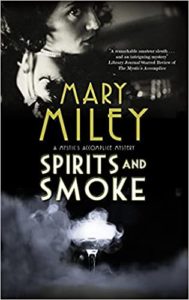 Chicago. Maddie Pastore, a widow, has moved into Madame Carlotta Romany’s Chicago house, where she assists the medium by acting as her investigator. When a new client requests an appointment, Maddie checks out wills and obituaries. Herman Quillen’s brother, Samuel, wants to talk with the deceased man, but Maddie’s search reveals that Quillen only had two sisters. After Carlotta accuses the man of lying, Maddie learns he’s really Louis Roth, part of Chicago’s North Side Gang. Why would a gangster want to talk to a dead bank
Chicago. Maddie Pastore, a widow, has moved into Madame Carlotta Romany’s Chicago house, where she assists the medium by acting as her investigator. When a new client requests an appointment, Maddie checks out wills and obituaries. Herman Quillen’s brother, Samuel, wants to talk with the deceased man, but Maddie’s search reveals that Quillen only had two sisters. After Carlotta accuses the man of lying, Maddie learns he’s really Louis Roth, part of Chicago’s North Side Gang. Why would a gangster want to talk to a dead bank
teller? Quillen was murdered, and Roth believes he stole cash that belonged to the gang. Roth wants it back, and he suspects Maddie knows where the money is. He threatens Maddie and her baby and gives her a deadline to return the cash. Shrewd, street-smart Maddie will use all her wits and assistance from Officer Kevin O’Rourke and a new reporter friend to uncover the truth behind Quillen’s life and death, while protecting those she loves.
VERDICT Fans of fast-paced historical mysteries will appreciate Miley’s latest.
—Library Journal starred review
Set in Prohibition-era Chicago, Miley’s vibrant sequel to 2021’s The Mystic’s Accomplice finds young widow and mother Maddie Pastore working as a shill and researcher for spiritualist Madame Carlotta Romany when a thuggish man crashes a séance and demands Carlotta contact his brother, bank teller Herman Quillen, who died after ingesting a poisonous “smoke cocktail.” But when Maddie digs into Quillen’s background, she discovers he had no brother. In fact, Quillen’s sister is convinced her brother was murdered. Who could have wanted the inoffensive and colorless Quillen dead, and who was the mysterious “brother” trying to find out at the séance? Could it have something to do with $100,000 missing out of a huge deposit by the mob at Quillen’s bank? The bagman who’s on the hook for the missing money believes Maddie knows where the money is, and he’s determined to get it from her any way he can. Miley’s storytelling skills do justice to her clever, gutsy, and endearing protagonist. This is a real treat for readers who love stories set in the Roaring ’20s
.—Library Journal starred review
The Mystic’s Accomplice
 Chicago’s violent Torrio-Capone gang – and a baby on the way. But then Tommy is shot dead, and she learns her husband had a secret that turns her life upside down.
Chicago’s violent Torrio-Capone gang – and a baby on the way. But then Tommy is shot dead, and she learns her husband had a secret that turns her life upside down.Miley, Mary. The Mystic’s Accomplice. Severn House. (Mystic’s Accomplice Mystery, Bk. 1). Jun. 2021. 224p. ISBN 9780727850423. $28.99. M
Grieving pregnant widow Maddie Pastore didn’t know what her husband did for a living, until the Chicago mob shows up at his 1924 funeral. She ends up broke and loses her house, but she’s determined to make a living without calling on the mob for help. When the mystic Madam Carlotta, asks her to a séance, Maddie sees opportunity. She offers to research Carlotta’s clients, and discovers she’s good at digging through newspapers and wills and talking with servants. One of the mystic’s clients always cancels her sessions, claiming illness; Maddie learns the woman lost her husband and a nephew to tragedy and she begins to worry that the client could be the target of a killer. Courageous Maddie uses her new skills to attempt to save a life and trap a murderer. VERDICT Miley (“Roaring Twenties” series) returns to the jazz age in this mystery introducing a remarkable amateur sleuth, widow, and mother. It skillfully combines the tantalizing atmosphere of a speakeasy- and mob-filled Chicago, historical figures, and an intriguing mystery.—Lesa Holstine,
Evansville Vanderburgh P.L., IN
Publishers Weekly
For Maddie Pastore, the narrator of this appealing series launch set in 1924 Chicago from Miley (the Roaring Twenties mysteries), the good times of the Jazz Age end with the gangland shooting death of her husband, who helped supply bootleg hooch to the city’s speakeasies. Homeless, pregnant, and with few resources, Maddie finds refuge at a shelter, where she gives birth to a son. Fearful she’ll be drawn back into the world of organized crime, Maddie has the good fortune to run into a friend who now styles herself Madame Carlotta Romany, a mystic. When Madame Carlotta offers Maddie a job aiding her séances, Maddie readily agrees, even if it means duping innocent people. Maddie begins to investigate clients’ backgrounds to augment her new employer’s visions, and when she stumbles across a murderer about to kill again, she must use every trick in the book to bring about some justice. Miley smoothly inserts real-life notables such as Al Capone and philanthropist Jane Addams into the twisty plot. This new historical mystery series is off to a flying start.
Kirkus Reviews
THE MYSTIC’S ACCOMPLICE. Mary Miley. Severn House (224 pp.) $28.99 ISBN 978-0-7278-5042-3
A young widow’s job turns her into a determined sleuth in this series debut from Miley.
Maddie Pastore was living happily in 1924 Chicago with a handsome husband and baby on the way. Unfortunately, her husband Tommy’s well-paying job driving for the mob ended when he was shot dead. Maddie’s money and her house vanish in an instant when Tommy’s first, and still legal, wife turns up, leaving Maddie broke. Desperate, she goes to Hull House waiting for little Tommy’s birth but fails to find a job until she meets Mrs. Burkholtzer, the mother of a school friend, who’s reinvented herself as the spiritualist Carlotta Romany. Beginning by playing a grieving widow at seances, Maddie graduates to doing research on upcoming clients while Freddy, a youth Madame Romany’s taken in, provides the ghostly effects. Maddie quickly takes to her job and enjoys chatting up people until she realizes that one of their clients may become the victim of a determined murderer. The wealthy Mr. Weidemann has left his house and half his estate to his wife, with most of the rest divided between two nephews. By chance Maddie runs into one nephew being thrown out of a speak-easy and then learns that the other one has drowned. She suspects that the persistent stomach problem that’s kept the widow Weidemann from coming to a seance stems from poisoning. Helping the widow may draw on every ounce of Madame Romany’s psychic abilities.
Plentiful historical detail and a sparkling cast of characters.
Murder in Disguise
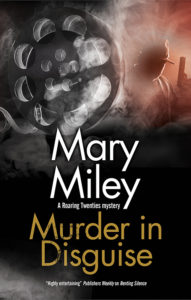 Joe Petrovitch was gunned down on a sunny Saturday afternoon in early October, during the ninth reel of Charlie Chaplin’s Gold Rush. Employed by Douglas Fairbanks and Mary Pickford, Jessie Beckett has a busy time as Script Girl for Pickford-Fairbanks studios. Yet she also has a reputation as a skilled amateur sleuth. So when a projectionist is shot dead and his grieving widow asks Jessie if she can find out who killed him, Jessie is determined to find the killer and his motive. But who was the mysterious man in the red coat who fired three shots at Joe Petrovitch? And how could he enter and leave a crowded theatre without being noticed? To find the answers, Jessie must delve into the dead man’s past and uncover dark secrets from another continent and another era. As she is to discover, the past has a long reach…
Joe Petrovitch was gunned down on a sunny Saturday afternoon in early October, during the ninth reel of Charlie Chaplin’s Gold Rush. Employed by Douglas Fairbanks and Mary Pickford, Jessie Beckett has a busy time as Script Girl for Pickford-Fairbanks studios. Yet she also has a reputation as a skilled amateur sleuth. So when a projectionist is shot dead and his grieving widow asks Jessie if she can find out who killed him, Jessie is determined to find the killer and his motive. But who was the mysterious man in the red coat who fired three shots at Joe Petrovitch? And how could he enter and leave a crowded theatre without being noticed? To find the answers, Jessie must delve into the dead man’s past and uncover dark secrets from another continent and another era. As she is to discover, the past has a long reach…
Is your book club reading Murder in Disguise? Consider posing these questions:
–Did you hear stories from your grandparents about the Roaring Twenties? Prohibition? Women’s rights? How did they correspond to the circumstances in Murder in Disguise?
–What parallels do you find between Prohibition of alcohol in the 1920s and today’s prohibiting of recreational drugs? Do you think the government should prohibit or regulate alcohol, recreational drugs, medicine, cigarettes, or other items?
–Some historians believe the women’s movement made its greatest advances in the 1920s. What evidence for this did you find in Murder in Disguise? What examples of limitations on women did you notice in the story? What could Jessie do or not do back then that we take for granted today?
–Vaudeville began in the 1870s and reached its height in the 1920s when this story takes place. It declined in the 1930s and was gone by the 1940s. Why did this popular form of family entertainment disappear?
–The Roaring Twenties was a virulently racist era, the height of the Ku Klux Klan in both northern and southern states, and a time when anti-black, anti-Catholic, anti-immigrant, anti-Semitic, anti-Asian, and anti-gay sentiments were universal. What makes Jessie more open-minded than the typical American?
–What special difficulties does Jessie face when it comes to discovering who killed the projectionist? The other murders? If the investigation happened today, what differences would we find in the story?
–Could the story have happened like this today? How would it have changed if we moved the date to the present?
Renting Silence
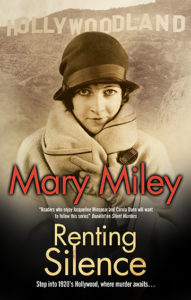 Renting Silence is the latest mystery in the Roaring Twenties series. Available in hardcover in the U.K., Australia, and New Zealand from August 31, 2016. Available in the U.S. in hardcover and e-book from December 1, 2016. Paperback to follow on September 1 . . . http://severnhouse.com/book/Renting+Silence/8708
Renting Silence is the latest mystery in the Roaring Twenties series. Available in hardcover in the U.K., Australia, and New Zealand from August 31, 2016. Available in the U.S. in hardcover and e-book from December 1, 2016. Paperback to follow on September 1 . . . http://severnhouse.com/book/Renting+Silence/8708
Reviews:
“Readers will welcome this third showcase for a valiant heroine with a shady past.” –Kirkus, 10/1/16
“In Miley’s highly entertaining third mystery set during the 1920s (after 2014’s Silent Murder), Hollywood “script girl” Jessie Beckett draws on her education in the school of hard knocks as well as her years in vaudeville to track down the killer of a young woman with a taste for blackmail. . . . The reader gets a strong sense of what life was like if you were from an outsider group or broke Hollywood’s moral code in public. A middle-of-the-night encounter with the Ku Klux Klan is particularly chilling. All the details of her journey not only advance the story but are fascinating in themselves.” –Publisher’s Weekly, 10/17/16
” . . . Set in Jazz Age Hollywood, with cameo appearances by famous stars and stars in the making, along with the slightly shady (but delicious) David Carr from the previous two books, this series’ third instalment zips along with energy. . . . A little sparkle, a hint of sex, some wily Prohibition-era shenanigans, and one smart cookie in the lead make this a great read.” –Booklist, 10/15/16
“VERDICT: With a well-developed and surprising plot twist, an appealing, resourceful amateur detective, and fascinating period details, this entertaining historical will delight fans of Old Hollywood and those who like the 1920s-set mysteries of Suzanne Arruda and George Baxt.” –Library Journal, 11/1/16
“Miley’s third Roaring -20s mystery delivers more zippy entertainment that taps into the spirit of the time when Hollywood’s silent film stars had audiences swooning and vaudeville acts traversed the country via rail.” https://historicalnovelsociety.org/reviews/renting-silence
Is your book club reading RENTING SILENCE? Consider posing these questions:
–Did you hear stories from your grandparents about the Roaring Twenties? Prohibition? Women’s rights? How did they correspond to the circumstances in RENTING SILENCE?
–What parallels do you find between Prohibition of alcohol in the 1920s and today’s prohibiting of recreational drugs? Do you think the government should prohibit or regulate alcohol, recreational drugs, medicine, cigarettes, or other items?
–Some historians believe the women’s movement made its greatest advances in the 1920s. What evidence for this did you find in RENTING SILENCE? What examples of limitations on women did you notice in the story? What could Jessie do or not do back then that we take for granted today?
–Vaudeville began in the 1870s and reached its height in the 1920s when this story takes place. It declined in the 1930s and was gone by the 1940s. Why did this popular form of family entertainment disappear?
–The Roaring Twenties was a virulently racist era, the height of the Ku Klux Klan in both northern and southern states, and a time when anti-black, anti-Catholic, anti-immigrant, anti-Semitic, anti-Asian, and anti-gay sentiments were universal. What makes Jessie more open-minded than the typical American?
–What special difficulties does Jessie face when it comes to discovering who killed Lila Walker? If the investigation happened today, what differences would we find in the story?
–Could the story have happened today? How would it have changed?
Opening chapter of Renting Silence
CHAPTER ONE
Filming silent movies is noisy work—directors shouting instructions through megaphones, cameras grinding away like machine guns, studio musicians playing the mood from the corner—which is why I was perplexed when I walked onto the set of Little Annie Rooney that morning and found it frozen in silence. Actors, electricians, makeup artists, grips, carpenters, script girls, and cameramen stood motionless, as if drawing a deep breath would shatter a spell. Only one person gave life to the scene, and all eyes were on her. Mary Pickford, “America’s Sweetheart” and the star of the film, was slowly pacing the edge of the set, her head down in fearsome concentration.
I looked to Director William Beaudine who motioned for me to stay where I was. He waited until Miss Pickford faced away from him before gliding to my side, so his movement wouldn’t distract her.
“A note said Miss Pickford wanted to see me on the set,” I whispered. “Maybe I’d better come back later?”
Tall and stick thin, Beaudine had to bend to get close to my ear. “Hang on a minute, Jessie. This is the last take before we break.”
One glance at the chalkboard in a young assistant’s hand raised my eyebrows. Sixteen takes? That was a lot, even for a perfectionist like “Re-take Mary Pickford.”
“I could strangle Rudolph Valentino,” the director whispered, almost to himself. “He barged in here, broke her concentration. She hasn’t—”
Miss Pickford stopped and lifted her chin. “I’m ready.”
The scene lurched to life. “Hit ‘em once!” shouted Beaudine and the set was instantly flooded with silvery light from an array of Kleigs, baby spots, and barrel lights. “Camera!” Cameramen cranked up their Mitchells, and the four studio musicians in the corner began playing a gloomy number to set the mood. They were shooting the tearjerker part, where Little Annie learns her policeman father has been killed in the line of duty.
As I watched, thirty-three-year-old Mary Pickford, playing a twelve-year-old girl, scampered out from her hiding place under the table, ready to surprise her beloved father with his birthday cake, only to find herself face to face with a policeman sent to deliver the tragic news. Her expression started at mischievous and slid rapidly past puzzlement, confusion, disbelief, denial, futile hope, and horror, only to end with heart-rending tears. It was an astonishing display of acting skill. In all my years in vaudeville, I had never seen the equal. No wonder she was the most famous actress in the world! I hoped everyone in the audience would have hankies in hand—I was misty-eyed myself. The scene reminded me all too forcefully of having been orphaned myself at the same age.
“Cut! Good work, good work, everyone,” called Beaudine. “No more shooting for now, boys and girls. We’ll break for lunch, and well deserved it is. Take a whole hour.”
A solemn Mary Pickford came over to exchange a few words with Beaudine. Catching sight of me, she gestured to one of the simple wooden chairs on the set, meaning that she would be with me shortly.
I sat down and swung my legs. The seat of the chair was high, maybe three inches higher than normal. I’m small—just over five feet, the same height as Miss Pickford—but I can’t usually swing my legs in a chair. I studied the wooden kitchen table. It was made to the same scale, a little higher than typical.
Mary Pickford walked over and sank into the chair beside me. “What are you smiling at, Jessie?”
“I just realized what you are doing,” I said, awed by her mastery of the craft. “With the furniture, I mean. The whole set is over-large, isn’t it? And that policeman who delivered the bad news, he was very big and tall.”
Suddenly she was Little Annie Rooney again, grinning like a youngster caught up in mischief. She swung her feet too. “When I’m doing a young role, I always hire tall actors. They make me seem smaller by comparison. A couple extra inches on the furniture don’t hurt either.”
“I saw the final take. You were wonderful.”
You’d have thought I’d insulted her. Her shoulders slumped, her grin fell away, and her honey-colored ringlets bounced as she shook her head. “Thank you, but I wasn’t. And I had it! I really had it!” She slapped the table for emphasis. “Before Rudy walked in, I was twelve years old. When he left, I couldn’t get it back. No matter how hard I tried, I just couldn’t get it back.”
There was nothing I could say. The scene had looked great to me, but what did I know? I was just a lowly assistant script girl new to Hollywood, having been hired by Mary’s husband, Douglas Fairbanks, a few months earlier.
“I’m not blaming Rudy,” she went on, more to herself than to me. “I invited him to stop by the set any time and say hello, bless his heart, and that’s all he did. But it distracted me. It was my fault entirely. My fault.” She swung her legs a little longer, sighed, then looked toward the twin cameras. “Oh, Rob!” she called. “Rob Handler!”
One of the cameramen turned at the sound of his name and nodded that he had heard. Pulling a reel of film off the Mitchell, he methodically packed it in a soft case before joining us in the middle of the set.
“Have you met Jessie Beckett?” asked Miss Pickford.
The cameraman nodded. “I’ve seen her around,” he said, then turned to me. “You’re the girl who used to play vaudeville. I heard how you helped solve those gangster murders last month. Pleased to know you.”
“Rob Handler is one of the finest cameramen at our studio,” she said by way of introduction. “One of the finest in all of Hollywood, actually.”
A wiry, middle-aged man who would have passed unnoticed in a crowd, Handler looked like he’d done a week’s worth of work in the past few hours. His forehead was creased with worry, his eyes heavy with dark circles. The compliment from Mary Pickford brought the merest twist to his lips. He sank onto the hard chair like a marionette with slackened strings.
“You used to play kiddie roles, didn’t you?” he asked, more to be polite than from any real interest.
“Most recently, yes. I was with the Little Darlings for a few years. But I’ve also worked for the Kid Circus, a couple of magicians, a Shakespeare troupe, and a variety of song and dance acts.”
“And now you’re an assistant Script Girl.”
“She’ll be working with Douglas on his new pirate picture. But I was hoping she could stand in for me this afternoon. That
hospital scene we’re shooting uses only my back. If you would, Jessie, that would free me up for a meeting.”
Miss Pickford had mentioned once before that she might want to use me as a double. We were the same size and build, and while my auburn hair was bobbed and her ringlets were long and golden, there were wigs in Costume that would solve that in a jiffy. From the back, we would be indistinguishable. Imagine, me, Jessie Beckett, a stand-in for the incomparable Mary Pickford! Last year’s vaudeville wash-up, when I was turned down at every try-out, had squelched any ambition I might have had about acting in the pictures—I simply didn’t have that sort of talent—but the prospect of this small connection to the woman I idolized thrilled me. My heart beat faster.
“Sure!” I said, too quickly. My excitement crashed as fast as it had soared. I held up my right hand, the one that had been injured a last month when someone I was investigating at Miss Pickford’s request had tried to kill me at the foot of the Hollywoodland sign. Two fingers were still in a splint. “Is this a problem? I’m sure I can get Wardrobe to remove it for the scene.”
“That would be wonderful. I’ll let Beaudine know. Thank you, Jessie.”
I heard dismissal in her voice and stood. “I guess I should go see about costumes . . . ”
“No, no, sit. That wasn’t the only reason I called for you. What I really want is for you to hear Rob’s story. If you don’t mind, Rob, dear, please tell her what you told me yesterday,” she said.
Handler glanced back and forth between us, and I thought for a moment he was going to say he was too tired to speak. Instead he sighed and leaned forward, rested his elbows on his knees, and started to talk in a monotone that brooked no interruption.
“Well, it’s like this. I was called to jury duty for the Ruby Glynn trial,” he began, staring down at his clasped hands. Of course I knew about the Ruby Glynn case. Everyone did. It had been in all the papers. In fact, I was even grateful to Ruby Glynn for making me old news when her own sensational trial had pushed me and the Hollywood gangster murders off the front page. But I hadn’t realized that someone in our own Pickford-Fairbanks Studios had been on the Glynn jury.
“Well, I need to tell you how it was, because the newspapers, well, they got a lot of things wrong.”
That didn’t surprise me, not after my experiences with the yellow press during those murders last month. Pulitzer and Hearst had fought their customary inky battle for readers, printing speculation as fact, inventing outrageous stories, and slandering innocent people with no concern for the consequences. Any lie was printable as long as it boosted sales. I’d never again believe a word I read in the newspapers.
“At the trial, the lawyers kept saying it was a cut-and-dried case. They had so much proof, we didn’t even need to deliberate. Well, they did have good evidence—the murder weapon with fingerprints, her scream, the fights, Ruby’s ticket, the rented car . . . The defense, well, they didn’t have much to say about these things other than to say they were coincidence. So you’d think it would be an easy call, wouldn’t you? But through it all, I just had this feeling that wouldn’t go away. I believed her when she said she didn’t do it.”
Miss Pickford started to say something, but Rob didn’t notice; his eyes were glued to the floor as if he could only keep going if he didn’t raise them. Running his fingers through thinning hair, he continued.
“When we went in the back room to deliberate, the foreman took a preliminary vote to check the lay of the land. Three of us voted for acquittal, the two women and me. The others were patient at first, reviewing all the evidence, showing us where we were wrong. But we wouldn’t budge. Hours went by. Finally the foreman had to tell Judge Peters judge he had a hung jury. Judge wouldn’t accept that. He ordered us to go back and keep trying. Said we weren’t going home until we had a verdict. That’s when things turned nasty. The others, they shouted at us and said they wanted to go home to their families and their jobs. They accused us of—well, I don’t need to go into all that. It’s no excuse anyway.”
He paused to wipe his eyes and rub his nose with the back of his hand. Miss Pickford waited, respectfully silent, until he could gather himself.
“Pretty soon they bullied the older lady into changing her mind, and that convinced the other woman to give in too. That left me alone. They all said how impossible it was that I could believe Ruby Glynn was innocent with evidence like that. I couldn’t give any hard reason except that I had this feeling that she was telling the truth, that she didn’t kill that girl. She didn’t look like a killer. I didn’t know Ruby Glynn, never worked with her, never met her, but she just didn’t seem like the kind of girl who would kill someone.”
Miss Pickford reached over and gave his arm a pat. “Well, I know Ruby Glynn,” she said, “and I don’t think she could kill anyone either.”
“Still, feelings don’t hold up against facts, and finally I gave in too. The logic was all on their side. I thought, how can I be right and all these people be wrong? I’m not so much smarter than they are. So I voted guilty. We all went home. But that night, I knew I’d made a horrible mistake. Never mind how I voted, I still don’t believe Ruby Glynn killed that girl. I can’t tell you who did, but I don’t think it was Miss Glynn. Now she’s going to hang. If I had held my ground, the judge would have had to declare a mistrial, and another group of jurors would have heard the case. Maybe they’d have come to the same conclusion, who knows? But one thing’s certain—I put the noose around that girl’s neck, and I don’t know how I’m going to live with that for the rest of my life.”
Finally he looked up and his sorrowful brown eyes found mine. “I haven’t been able to sleep since. Or if I do fall off for a minute, the nightmares start.” He leaned back, a lost soul facing a pain-filled eternity.
For a long while, no one spoke. At last Miss Pickford broke the silence.
“I wonder if you would look into this for us, Jessie. Investigate this murder. I’ve already talked with Douglas, and he thinks it’s a fine idea. The pirate picture doesn’t need to take up your whole day, not at this stage anyway. And you have a knack for this sort of thing.”
I looked at the cameraman. Not a flicker of hope crossed his face. Or maybe he had sunk too far into his own private hell to hear. I looked at Mary Pickford. For the past ten years, she had been my idol. Studying her in moving pictures had taught me how to play young roles, my bread and butter for most of my adult life. She was “our Mary,” “the girl with the curls,” the most popular person in America, the founder of one of the most important film studios in Hollywood, and, some said, the most recognized face in the whole world. We had much in common—a childhood sacrificed to the stage, growing up in rundown boarding houses, sleeping on trains to save the dollar for the hotel, living on cheese sandwiches and pickles or whatever a friendly grownup would buy you without asking for a return on his investment. I had loved Mary Pickford long before I had the amazing good fortune to meet her. I hesitated not a second.
“Of course I’ll try, if you want me to. But I’m no detective . . . what can I do to investigate that the police haven’t already done?”
“That’s just it,” she said. “The police never investigated the case. Tell her, Rob.”
The cameraman pulled himself out of his reverie. “That’s so, Jessie. The police got called right when the landlady heard the scream. This was back in February, remember. The victim—Lila Walker, her name was—screamed when she was stabbed. The landlady ran upstairs and a couple girls from down the hall rushed in. They all saw Lila lying on the bedroom floor. She was still alive then, just barely. Ruby Glynn was lying there too, the bloody knife in her hand. She had fainted. First, everyone thought they were both dead, then one of ‘em brought Ruby around and helped her sit up. Lila kept pointing at her, trying to speak but she couldn’t get the words out. The doctor and the police arrived fast. The doc said Lila wouldn’t make it to the hospital, and he was right. But before she died, the cop asked her again, ‘Who did this to you?’ and she pointed one more time, real weak-like, to Ruby, then she went limp.”
“How awful,” I managed to say.
“Ruby said she didn’t do it. Said Lila was already stabbed when she got there. Maybe a good while before she got there, who knows? She said she was the one who screamed, not Lila, then she fainted. Said she’d never do anything like killing somebody, even if they had quarreled. She said they’d made up weeks before. She said Lila asked her to come over that day. Her lawyer said it was just coincidence that Ruby was planning to leave the country the next day.”
“And you believe Ruby?”
He swallowed hard. “Don’t think I don’t know it sounds daft, but I do. She was so confused looking, so innocent and scared. Reminded me of my daughter when she got lost one time. She just couldn’t have done it. I know, I know. Then, who did? Lila didn’t stab herself, and there was no one else there.”
http://severnhouse.com/book/Renting+Silence/8708
Stolen Memories
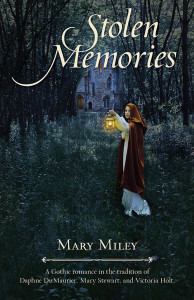 A brutal attack along the banks of the Seine in 1928 leaves a young Englishwoman close to death in a Paris hospital, without a memory in her head. She soon comes up against a vengeful husband who accuses her of the theft of priceless art, the French gendarmes who have linked her to a murder on the Riviera, and a scorned lover who is trying to kill her. The husband, believing his wife’s amnesia is faked, spirits her away to an ancient chateau in the French province of Champagne, where prehistoric dolmens and standing stones dot the fields and caves hewn out of limestone are used for more than storing wine. But who is trying to poison her and bury her in an avalanche of slate? Who is laying a trap for her deep within the wine caves of Champagne?
A brutal attack along the banks of the Seine in 1928 leaves a young Englishwoman close to death in a Paris hospital, without a memory in her head. She soon comes up against a vengeful husband who accuses her of the theft of priceless art, the French gendarmes who have linked her to a murder on the Riviera, and a scorned lover who is trying to kill her. The husband, believing his wife’s amnesia is faked, spirits her away to an ancient chateau in the French province of Champagne, where prehistoric dolmens and standing stones dot the fields and caves hewn out of limestone are used for more than storing wine. But who is trying to poison her and bury her in an avalanche of slate? Who is laying a trap for her deep within the wine caves of Champagne?
ebook: $4.99; paperback: $9.99 on Amazon
Silent Murders
Follow The Roaring Twenties mysteries on Facebook for the latest details.
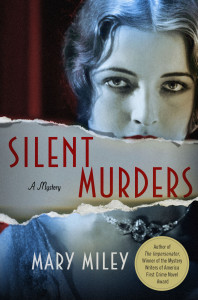 In the second Roaring Twenties murder mystery, Jessie trades her nomadic vaudeville life for a modest but steady job in the silent film industry. She quickly learns that all Hollywood scorns the Prohibition laws: studio bosses rule the police and gangsters supply speakeasies everywhere with bootleg hooch and Mexican dope. When a powerful director is murdered at his own party and Jessie’s waitress friend is killed for what she saw, Jessie takes the lead in an investigation tainted by corrupt cops. Soon tangled in a web of drugs, bribery, and greed, she finds herself a prime suspect as the bodies pile up.
In the second Roaring Twenties murder mystery, Jessie trades her nomadic vaudeville life for a modest but steady job in the silent film industry. She quickly learns that all Hollywood scorns the Prohibition laws: studio bosses rule the police and gangsters supply speakeasies everywhere with bootleg hooch and Mexican dope. When a powerful director is murdered at his own party and Jessie’s waitress friend is killed for what she saw, Jessie takes the lead in an investigation tainted by corrupt cops. Soon tangled in a web of drugs, bribery, and greed, she finds herself a prime suspect as the bodies pile up.
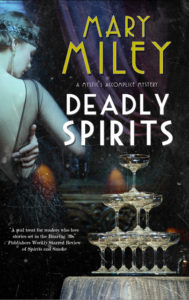
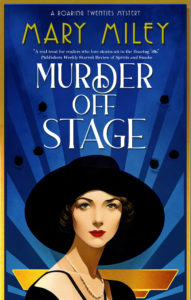 Murder Off Stage
Murder Off Stage
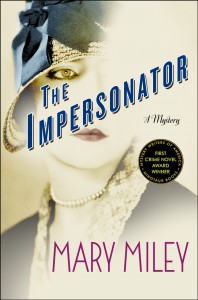


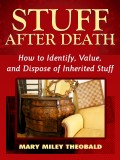





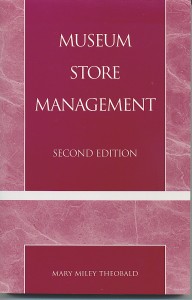
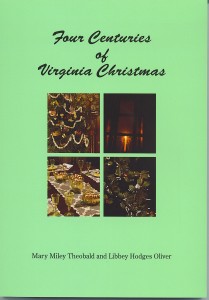
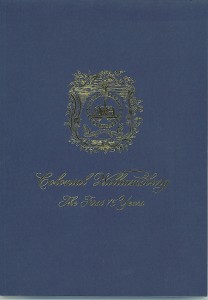





like me on Facebook follow me on twitter linkedin pinterest rss